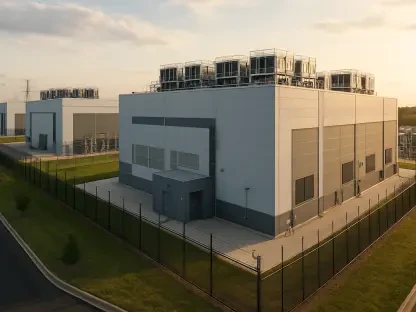The landscape of cloud computing has undergone a significant transformation, particularly with the rise of specialized private clouds. These purpose-built environments are designed to meet specific enterprise needs, especially in the realm of artificial intelligence (AI). As organizations increasingly invest in AI, the demand for tailored cloud solutions has surged, leading to the evolution of private clouds from their early, often criticized forms to sophisticated, highly specialized infrastructures.
The Evolution of Private Clouds
From Marketecture to Practical Solutions
In the early days, private clouds were often dismissed as glorified on-premise server solutions, more about marketing than actual technological innovation. They lacked the scalability, automatic resource management, and self-provisioning capabilities that define public cloud services. Open source projects like OpenStack emerged as viable private cloud solutions, but they initially seemed more like engineering experiments than practical, user-friendly installations. Companies were skeptical about the true value these private cloud solutions could provide, given the absence of the hallmark features of public clouds that made them so attractive.
As technology advanced, the capabilities of private clouds began to catch up, thanks to improvements in software and hardware integration. These enhanced private clouds began to offer automated workflows, better scalability, and more intuitive management interfaces, making them more practical for enterprise use. Enterprise IT departments witnessed a transformation in private cloud offerings that started striking a balance between the initial promise of cloud computing and the needs of on-premise infrastructure. This early evolution set the stage for the more specialized and sophisticated private clouds that would emerge in response to particular industry demands.
The Shift Towards Specialization
The narrative around private clouds has significantly shifted, especially with the surge in AI investments. This shift has created a demand for specialized private clouds that can offer prepackaged AI ecosystems conveniently deployable within an organization’s data center. These AI private clouds bundle everything from necessary development tools to optimized hardware configurations, such as GPU clusters and MLOps pipelines, designed to streamline the development and deployment of AI applications. The growth in AI has necessitated environments that can handle vast amounts of data, provide real-time processing, and ensure data sovereignty, which traditional private clouds were ill-equipped to manage.
A specialized AI private cloud allows enterprises to efficiently manage and deploy AI workloads without the latency and data governance issues associated with public clouds. It provides a robust and secure environment tailored to the sophisticated requirements of AI projects, ensuring that enterprises can innovate and scale their AI operations more effectively. This has been a game-changer for many organizations, enabling them to keep pace with rapid technological advancements without sacrificing control or security. The shift towards specialization marks a pivotal change in how enterprises approach cloud computing, opting for solutions that are not just generalized, but finely tuned to their specific needs.
Beyond AI: Diverse Enterprise Needs
High-Performance Computing and Developer Clouds
The evolution of private clouds extends beyond AI. Several specialized clouds now address diverse enterprise needs, including high-performance computing (HPC) clouds for intensive computation and developer clouds for streamlined software development. High-performance computing clouds provide the necessary infrastructure for complex simulations, data analysis, and other computation-heavy tasks that standard private clouds or public cloud services may struggle to support efficiently. These HPC clouds are invaluable to sectors like scientific research, financial modeling, and engineering, where computational power is crucial.
Developer clouds, on the other hand, are tailored to enhance the productivity of software development teams. They offer integrated development environments, debugging tools, and seamless CI/CD pipelines that speed up the development process and reduce time-to-market for new applications. These targeted private clouds ensure that developers have the resources they need to build and deploy applications efficiently, without the overhead of configuring and maintaining the underlying infrastructure. By catering to these specific needs, specialized private clouds provide significant advantages over more generalized cloud solutions, allowing enterprises to optimize their workflows and improve productivity.
Database, Disaster Recovery, and Edge Clouds
Other specialized private clouds include database clouds for efficient data management, disaster recovery clouds for business continuity, and edge clouds for IoT and real-time processing. Database clouds are specifically designed to handle large volumes of data, providing high availability, fault tolerance, and optimized performance. They ensure that data-intensive applications run smoothly, reducing latency and improving user experience. This specialization is particularly beneficial for industries that rely on robust data management systems, such as e-commerce and finance.
Disaster recovery clouds offer a lifeline for enterprises by ensuring business continuity in the event of an outage or disaster. These clouds are designed with redundancy, automated backups, and swift recovery options, minimizing downtime and data loss. This is crucial for maintaining operations and safeguarding critical business information. Edge clouds, meanwhile, bring computing power closer to the source of data generation, such as IoT devices. This proximity enables real-time data processing and analytics, which are essential for applications that require immediate insights and responsiveness, like autonomous vehicles and smart cities. Each of these specialized environments offers industry-specific features and optimized performance, making them indispensable for certain enterprise applications.
Industry-Specific Benefits
Financial Services and Multimedia
Industries such as financial services and multimedia are particularly benefiting from these specialized clouds. Financial services harness private clouds designed for high-speed transactions and regulatory compliance, ensuring that transactions are processed quickly and securely while adhering to stringent regulatory standards. These specialized private clouds are equipped with the necessary tools and frameworks to handle large volumes of transactions, complex calculations, and compliance reporting, making them critical for the financial sector’s operations. This specialization helps financial institutions maintain their competitive edge by optimizing performance and ensuring reliable service delivery.
Multimedia companies, on the other hand, use specialized clouds to optimize content delivery and streaming services. These clouds are designed to handle high-bandwidth requirements, ensuring that streaming media is delivered smoothly and without interruption. By leveraging specialized private clouds, multimedia companies can offer high-quality content to their audiences, improve user experience, and manage large libraries of media content more effectively. This results in enhanced performance, reduced buffering times, and the ability to scale to meet the demands of a growing user base. These tailored solutions provide significant advantages in terms of performance and compliance, making specialized private clouds a valuable asset for these industries.
Enhanced Data Sovereignty and Security
One of the key advantages of AI private clouds is enhanced data sovereignty and security. By keeping data within an organization’s data center, these private clouds reduce latency for real-time processing and offer greater control over data governance. This is particularly important for industries with stringent regulatory requirements, such as healthcare, finance, and government sectors. Ensuring that data remains within national borders and complies with local data protection laws is crucial for these industries, and specialized private clouds provide a secure and controlled environment to meet these needs.
Data sovereignty also helps mitigate the risks associated with data breaches and unauthorized access. By maintaining stricter control over data access and storage, organizations can better protect sensitive information and ensure compliance with regulatory standards. Additionally, the dedicated nature of AI private clouds allows for the implementation of advanced security measures, such as encryption, multi-factor authentication, and regular security audits. These features are essential in safeguarding data and maintaining the trust of customers and stakeholders. Enhanced data sovereignty and security make AI private clouds a compelling choice for organizations that prioritize data protection and regulatory compliance.
Challenges and Considerations
Technological Flexibility and Adaptability
Despite their benefits, specialized private clouds face challenges related to flexibility and adaptability. The static nature of AI private clouds can limit technological flexibility, potentially locking organizations into vendor-specific solutions that may not support future AI frameworks or tools. This reliance on specific vendors can create a situation where organizations are unable to take advantage of newer, more advanced technologies as they become available. Additionally, the complexities associated with integrating and migrating to different AI frameworks can be daunting, further complicating the ability to remain agile in a rapidly evolving technological landscape.
This lack of flexibility can stifle innovation and growth, making it crucial for organizations to carefully assess their long-term needs and the potential limitations of their chosen private cloud solutions. Enterprises must weigh the benefits of specialized private clouds against the potential risks of technological stagnation, ensuring that their infrastructure can adapt to future advancements. By considering these factors, organizations can make informed decisions about whether specialized private clouds are the best fit for their AI and enterprise needs, or if alternative solutions, such as hybrid or public clouds, might offer greater long-term benefits.
Cost Implications
Another critical consideration is cost. While public cloud providers operate on a pay-as-you-go model, making it easier to scale resources and adapt to new technologies, private AI clouds require substantial up-front investments. The costs can be staggering, ranging from two to ten million dollars for hardware infrastructure and annual software licenses costing between $500,000 and two million dollars. These initial investments can be a significant barrier for many organizations, particularly smaller enterprises or those with limited budgets. Moreover, there are ongoing operational expenses, including staffing, utilities, and maintenance, which must be factored into the overall cost analysis.
Despite these high initial costs, private clouds can offer operational cost advantages over public clouds in the long run. Over a five-year period, organizations may find that the total cost of ownership (TCO) for private clouds is lower than that of public clouds, particularly for workloads that require consistent, high-performance computing resources. However, it is essential for organizations to conduct a thorough TCO analysis, taking into account all associated costs, such as personnel, power, and maintenance, to make an accurate comparison. Hidden costs are often overlooked, skewing comparisons between public and private cloud options and potentially leading to suboptimal decisions.
Strategic Approaches
Total Cost of Ownership Analysis
Over a five-year period, private clouds can offer operational cost advantages compared to public clouds. However, organizations must consider all associated costs, such as personnel and power, when conducting a total cost of ownership (TCO) analysis. These hidden costs are often overlooked, skewing comparisons between public and private cloud options. By conducting a comprehensive TCO analysis, organizations can better understand the true financial implications of adopting specialized private clouds and make more informed decisions about their cloud strategy.
A thorough TCO analysis should include costs related to hardware, software, personnel, utilities, maintenance, and other operational expenses. It is also important to consider potential cost savings from improved efficiency, reduced downtime, and enhanced performance. By weighing these factors, organizations can determine whether the long-term benefits of specialized private clouds outweigh the initial investment and ongoing operational costs. This strategic approach ensures that organizations are making financially sound decisions that align with their overall business objectives and technology goals.
Hybrid Cloud Models
A hybrid approach is recommended as a practical solution. Organizations can leverage specialized private clouds for consistent workloads requiring strong data governance while using public clouds for experimentation and overflow capacity. This hybrid model, while more complex to manage, provides flexibility and scalability, ensuring that organizations are not locked into potentially outdated technologies. By combining the strengths of both private and public clouds, enterprises can optimize their cloud infrastructure to meet diverse needs and adapt to changing demands more effectively.
Implementing a hybrid cloud model requires careful planning and management to ensure seamless integration and interoperability between private and public cloud environments. Organizations must develop robust strategies for data migration, workload distribution, and security to maximize the benefits of a hybrid approach. Additionally, maintaining a balance between the two environments can help mitigate risks associated with technological lock-in and ensure that organizations can continue to innovate and grow without being hindered by inflexible infrastructure. This strategic approach enables enterprises to harness the advantages of specialized private clouds while retaining the adaptability and scalability of public cloud services.
Maintaining Adaptability
Starting Small and Scaling Up
Organizations should adopt a strategy that accommodates ongoing change, recognizing that today’s ideal cloud solution might not meet tomorrow’s needs. Starting small in public cloud environments and scaling up as workload patterns become better understood can help mitigate risks. By initially leveraging the flexibility and scalability of public clouds, organizations can experiment with different AI frameworks, tools, and technologies without committing to significant up-front investments. This approach allows enterprises to gather valuable insights and make data-driven decisions about their long-term cloud strategy.
As organizations gain a deeper understanding of their workload patterns and specific requirements, they can gradually transition to specialized private clouds or hybrid models that better align with their needs. This incremental approach minimizes the risks associated with committing to static and potentially outdated technologies and ensures that enterprises remain agile in the face of rapid technological advancements. By staying adaptable and open to new developments, organizations can continue to innovate and grow while effectively managing their cloud infrastructure.
Embracing Flexibility
The landscape of cloud computing has seen a major transformation, especially with the emergence of specialized private clouds. These custom-built environments are crafted to address the unique needs of enterprises, particularly in the field of artificial intelligence (AI). As companies boost their investment in AI technologies, the necessity for tailored cloud solutions has increased dramatically. This growing demand has driven the evolution of private clouds from their initial, often criticized stages into advanced, highly specialized infrastructures. In the past, private clouds were sometimes seen as lacking, but today’s iterations are designed to offer robust, secure, and efficient platforms that cater specifically to enterprise needs. These modern private clouds provide the agility, scalability, and performance required for AI applications, ensuring that organizations can leverage the power of cloud computing while maintaining control over their data and resources. This transformation highlights the critical role that private clouds now play in the broader cloud ecosystem, particularly as businesses continue to push the boundaries of technological innovation.









